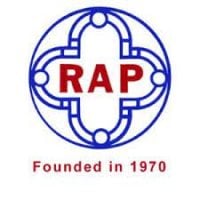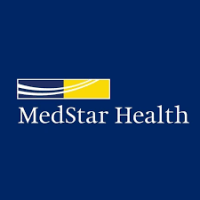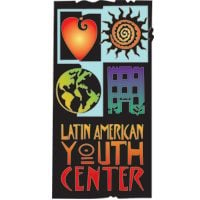
Reintegrating Alternatives Personal Program - RAPP
Drug Rehab Center in Washington, District of Columbia
- Opioid Addiction
- Dual Diagnosis
- Drug Addiction
- Alcoholism
RAPP is an accredited outpatient treatment facility in Washington, DC that specializes in providing individualized treatment plans for addiction, substance abuse, and co-occurring mental health disorders, as well as specialized services for youth and medication-assisted treatment services.
About This District of Columbia Facility
Reintegrating Alternatives Personal Program - RAPP is a comprehensive outpatient treatment facility located in the Washington, District of Columbia area. This facility specializes in providing a wide range of treatment options for individuals and families struggling with issues related to addiction, substance abuse, and co-occurring mental health disorders. RAPP's multidisciplinary team of specialists are dedicated to providing individuals and families with an individualized treatment plan to meet their individual needs.
RAPP provides a range of services for addiction and substance abuse, including assessment and diagnosis, individual and group therapy, family counseling, and relapse prevention. They also provide specialized services for clients with co-occurring mental health disorders, such as cognitive-behavioral therapy, motivational interviewing, and dialectical behavior therapy. Additionally, they offer specialized services for youth, such as trauma-informed care, social skills, and peer support. RAPP also provides medication-assisted treatment services and 24/7 access to medical staff.
Reintegrating Alternatives Personal Program - RAPP is accredited by The Joint Commission, a nationally recognized organization that assesses and accredits healthcare organizations. They are also licensed by the District of Columbia Department of Health Care Finance and are a member of the Foundations Behavioral Health Network. Additionally, RAPP has been honored to receive the 2018 Behavioral Health Excellence Award from the National Council for Behavioral Health.
Genders
Ages
Modality
Additional
Conditions and Issues Treated
Opioid addiction treatment should be done in a medically supervised drug rehab. Opioid addiction treatment will include detoxification and drug rehab counseling to help both the user and their loved ones learn how to live a successful sober lifestyle. Methadone, buprenorphine, and naltrexone are three medications that can help treat opioid addiction. Individual drug rehab counseling sessions can be helpful to discuss any questions or concerns with the drug treatment program.
Levels of Care Offered at Reintegrating Alternatives Personal Program - RAPP
This center offers a variety of custom treatment tailored to individual recovery. Currently available are Drug Rehab, Inpatient, Outpatient, with additional therapies available as listed below.
Inpatient treatment is an option that provides addicts with a supportive environment in which they can stop using. This type of intensive care and supervision is appropriate for those who were unable to quit on their own or need more structure than they could get from outpatient treatment, such as the addict most in need of this level of care.
The goal of inpatient rehab is for the addict to stay focused on sobriety and remain free of mood altering substances. Inpatient treatment programs usually offer the following: detox, therapy groups, one-on-one counseling, medication management and aftercare planning.
Individuals struggling with drug addictions can get help from several treatment options, including inpatient and outpatient programs. Outpatient drug treatment programs can also provide patients with different levels of care, usually depending on the patient’s degree of addiction.
At an outpatient program in Washington, a patient will attend a recovery program during the day and return home in the evening. Suppose a patient is struggling with drug addiction. In that case, an outpatient program can serve as an effective transition point during the recovery process.
Therapies & Programs
Individual therapy is a critical component of addiction recovery. It allows the patients to go deep into their core issues and discover how to handle those problems better. Therapy can be conducted in individual sessions as well as group settings. In individual therapy for addiction, the patient meets with their therapist one-on-one to focus on the underlying issues. This allows patients to open up and discuss personal topics they may not feel comfortable discussing in a group setting. This type of therapy can help develop solutions specific to each patient, which helps speed up the recovery process.
Group therapy helps prevent addicts from feeling isolated or unique in their situation by offering a sense of comfort and fellowship. It also creates a forum for addicts to build their support systems and learn from each other. The group therapy sessions at Reintegrating Alternatives Personal Program - RAPP occur in a group setting rather than one-on-one to create a safer, controlled environment where addicts feel comfortable.
Trauma therapy helps people dealing with addiction by allowing them to confront the traumas of their past and move past them. It is important to note that trauma therapy should not be confused with PTSD (post-traumatic stress disorder) Rather, it is used to treat the effects of trauma, which are often at the root of addiction.
Cognitive Behavioral Therapy (CBT) is a common therapeutic approach to help drug addicts. It teaches addicts new ways of thinking and behaving so that they can avoid relapse. There are several forms of CBT used in drug rehabilitation centers.
Cognitive Restructuring helps addicts identify faulty, negative thinking so that they can work together with the therapist to find healthier ways of thinking, resulting in better decision-making.
Cognitive Behavioral Therapy for Addiction uses the principles of CBT to help treat addiction. It focuses on specific aspects of each person’s thinking, feeling, physiology, and behavior. It aims to identify specific problems in these areas and create a personalized treatment strategy.
The best drug treatment centers offer various services to help addicts learn how to live without drugs. Since addiction is a chronic physical and mental illness, addicts need to learn as many life skills as possible to help them stay clean and sober.
Many drug treatment centers like Reintegrating Alternatives Personal Program - RAPP offer life skills activities as part of their addiction recovery programs. Examples include cooking classes, employment training, resume writing seminars, parenting classes, and computer training. When addicts have various life skills to lean on, they’re better equipped to put their addiction behind them for good.
The primary goal of life skills activities at drug treatment centers like Reintegrating Alternatives Personal Program - RAPP is to help addicts recover from addiction and learn how to live a useful, productive life. Life skills activities help addicts find employment, take care of their families, and give back to the community. After learning about these various life skills, addicts are better prepared to return to society and lead happy healthy lives.
Payment Options Accepted
For specific insurance or payment methods please contact us.
Additional Details
Specifics, location, and helpful extra information.
Washington, District of Columbia 20020 Phone Number(202) 678-6038 Meta DetailsUpdated November 25, 2023
Staff Verified
Patient Reviews
There are no reviews yet. Be the first one to write one.
Washington, District of Columbia Addiction Information
In Washington, District of Columbia, there were 9,912 admissions to drug and alcohol treatment facilities in 2016. The most commonly abused drugs in the district include cocaine, heroin, and marijuana. Families are struggling to cope with addiction, and many people are looking for help. Many excellent drug rehab centers in Washington, District of Columbia, can help people struggling with addiction get clean and sober.
Treatment in Nearby Cities
Centers near Reintegrating Alternatives Personal Program - RAPP
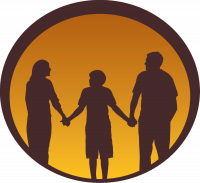
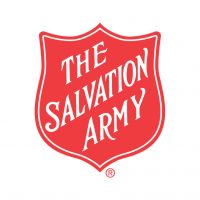
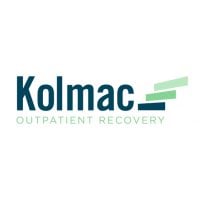
The facility name, logo and brand are the property and registered trademarks of Reintegrating Alternatives Personal Program - RAPP, and are being used for identification and informational purposes only. Use of these names, logos and brands shall not imply endorsement. RehabNow.org is not affiliated with or sponsored by Reintegrating Alternatives Personal Program - RAPP.

